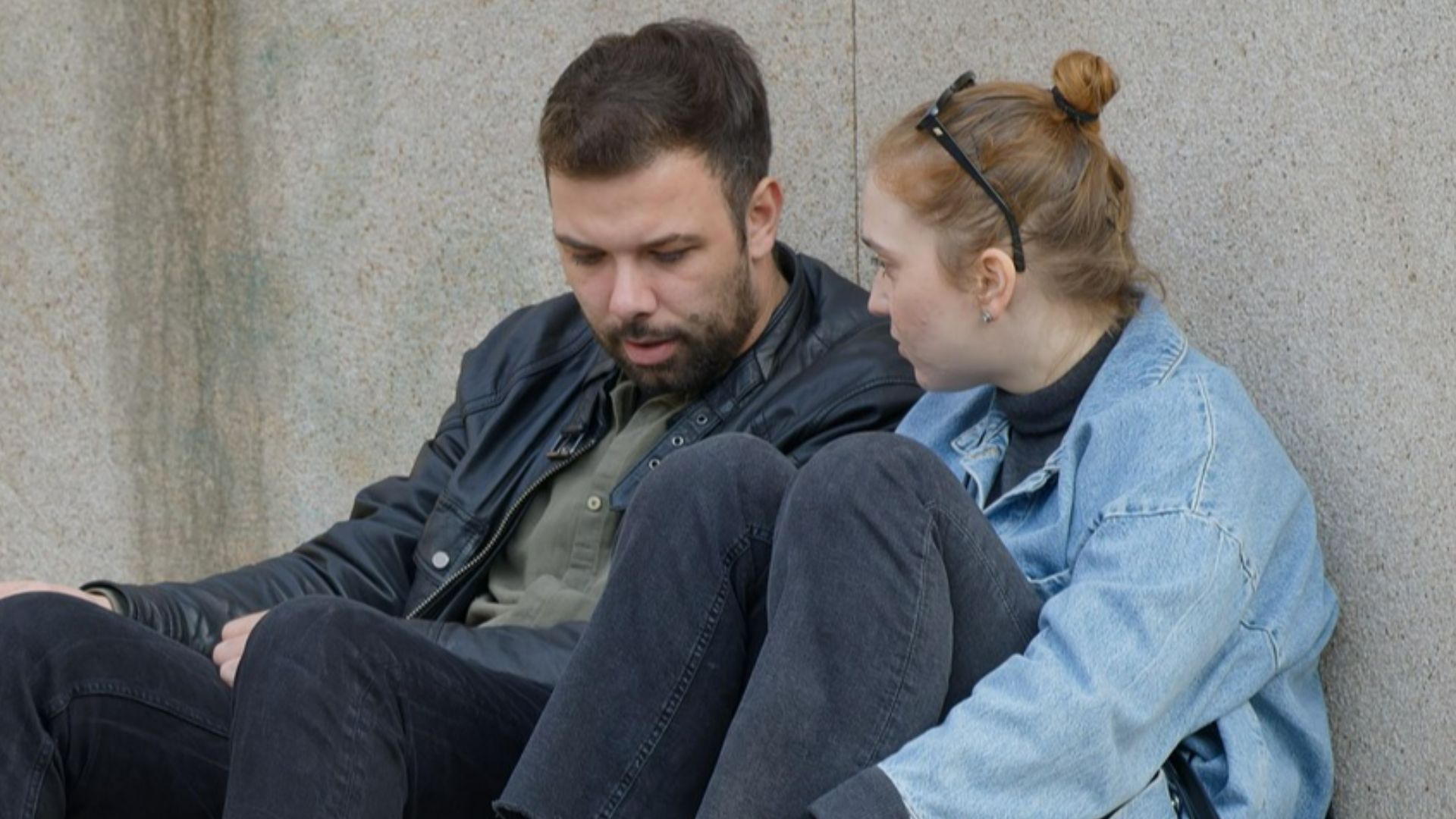When Words Aren't Enough
Apologies come easy, but what about trust? That’s trickier. With trust broken, even perfect apologies or grand gestures feel like ineffective theatrics. It’s about showing up, day after day, in the small ways that matter. If you’re here, you’re looking for answers. Good news: rebuilding trust isn’t a mystery—it’s a process. Here are 20 ways that could help.
1. Start With Honest Conversations
Words have power, and honesty is the foundation of trust. When trust is broken, open and sincere conversations become non-negotiable. So, acknowledge your mistakes without excuses, express emotions without hostility, and listen without interruption. Transparency sets the tone for genuine healing.
2. Take Responsibility To Show Maturity And Sincerity
Owning up to mistakes proves that you are emotionally mature and have genuine remorse. Avoid shifting blame or justifying your actions. Instead, admit wrongdoing with sincerity. A heartfelt apology should also be backed by meaningful change because actions speak louder than regret, and consistent responsibility over time restores confidence.
3. Understand The Root Cause To Avoid Repeated Mistakes
Mistakes typically stem from unresolved issues. So, dig deep into what caused the betrayal—was it insecurity, lack of communication, disrespect, or unresolved trauma? Identifying the trigger helps prevent history from repeating itself. Self-reflection and open dialogue uncover the true problem, making lasting change possible.
4. Follow Through On Promises To Prove Commitment
Broken trust makes every word subject to doubt, so keeping commitments—big or small—is vital. Whether it’s calling when you say you will or showing up emotionally, reliability rebuilds security. Small, consistent actions accumulate into proof of change.
 Priscilla Du Preez 🇨🇦 on Unsplash
Priscilla Du Preez 🇨🇦 on Unsplash
5. Allow Time And Space To Aid Emotional Processing
Healing takes time, and forcing trust can backfire. That said, give each other time and emotional space to allow wounds to close naturally. Rushing forgiveness can lead to unresolved resentment. Just be patient and let the process unfold at its own pace.
6. Bring Consistency To Prove You’re Reliable
When trust is broken, every action is under scrutiny. That’s why consistency is your greatest tool. Don’t right your wrongs the first time and forget the next. Stay true to your motive every single time. Over time, you prove that you are serious about earning their trust back.
7. Practice Open Communication As It Reduces Doubt
When communication is vague, assumptions take over. The solution is to openly share your thoughts, which reduces uncertainty. Regular check-ins also work wonders because they build emotional safety and prevent misinterpretations. Remember, clarity is the antidote to suspicion.
8. Demonstrate Accountability To Strengthen Reassurance
Accountability means more than apologies. It means proving change by accepting that you are responsible. Words lose value when behavior remains the same. And quite frankly, it makes the other person completely lose hope! Show how accountable you are in tangible ways to reassure your partner.
9. Offer Voluntary Updates To Rebuild Confidence
Secrecy is your enemy when you are trying to get back in their good books. It breeds suspicion, but voluntary transparency rebuilds confidence. Whenever you voluntarily tell your partner where you are, who you’re with, what you’re doing, and when you’ll be back, it puts them at ease. It builds confidence.
10. Show Empathy To Validate The Other Person’s Pain
Genuine empathy means understanding your partner’s hurt without defensiveness. Saying, “I understand how this affected you,” could be the first step in having a conversation without defensiveness. Dismissing or minimizing your partner’s feelings only deepens the wound.
11. Express Genuine Affection To Rekindle Emotional Bond
You know of the five love languages, right? Well, practice them and do it genuinely, not out of guilt. Physical touch, a hug here and there, and kind gestures like picking up a chore—they usually help restore emotional intimacy.
 Priscilla Du Preez 🇨🇦 on Unsplash
Priscilla Du Preez 🇨🇦 on Unsplash
12. Develop New Shared Experiences To Get Back To The Fun Side
Memories forge bonds, and creating new ones helps overwrite painful ones. Whether traveling, taking a class together, picking a new hobby, or cooking a new dish, shared experiences deepen emotional intimacy. Fun and teamwork strengthen trust organically. So, think about it.
13. Address Triggers Together To Prevent Setbacks
Triggers, if left unchecked, will throw you off. So much so that identifying them and discussing coping strategies prevents future conflicts. Instead of avoiding hard topics, confront them with intentionality and care. Healing means working through—not around—emotional landmines.
14. Encourage Transparency About Feelings For Emotional Security
Suppressing feelings leads to distance, while sharing them fosters closeness. By encouraging vulnerability without judgment, you become a team, one that stands by emotional safety. When partners feel secure expressing concerns, trust flourishes. Emotional honesty is the heartbeat of trust.
15. Acknowledge Progress As It Motivates Continued Effort
Every step you make forward as a couple deserves recognition. And this is how you do it: Celebrate milestones, no matter how small. Progress fuels motivation and reinforces positive changes. So, a simple “I see the effort you’re making” can mean everything. Acknowledgment breeds consistency.
16. Accept Boundaries Without Resistance To Show Respect
Your partner needs space to heal, and respecting their boundaries proves you understand that. It’s about giving them time alone, avoiding certain conversations, or being transparent about your actions. This shows you are honoring their limits, and you value their comfort over your impatience.
 Surprising_SnapShots on Pixabay
Surprising_SnapShots on Pixabay
17. Respect Individual Growth To Support Long-Term Trust
People evolve, and relationships (especially rebuilding ones) must adapt. You do this by supporting your partner’s personal growth because it strengthens respect. Trust deepens when your partner feels free yet connected. Their growth isn’t a threat here. It’s an asset.
18. Create New Relationship Agreements To Strengthen Future Commitment
When you’ve dealt with past mistakes, it shapes future agreements. What does this mean? It means defining relationship expectations to keep all the old patterns at bay. Agreements early on provide clarity, reducing misunderstandings as you gain back their trust.
19. Commit To Personal Integrity To Prevent Future Betrayals
Integrity means doing the right thing, especially when no one is watching. That’s how you truly get on a good path. Having strong personal values always bleeds into relationship ethics. The strongest trust comes from unwavering character, so be an example starting now!
 Laurenz Kleinheider on Unsplash
Laurenz Kleinheider on Unsplash
20. Seek Professional Help If Understanding Is Fleeting
Finally, if all seems not to work, a neutral perspective might make all the difference. That’s where relationship counselors come in. These professionals provide tools and insights that may not be apparent to people within the relationship. Therapy fosters emotional intelligence and effective conflict resolution. If nothing’s working, this might!
























